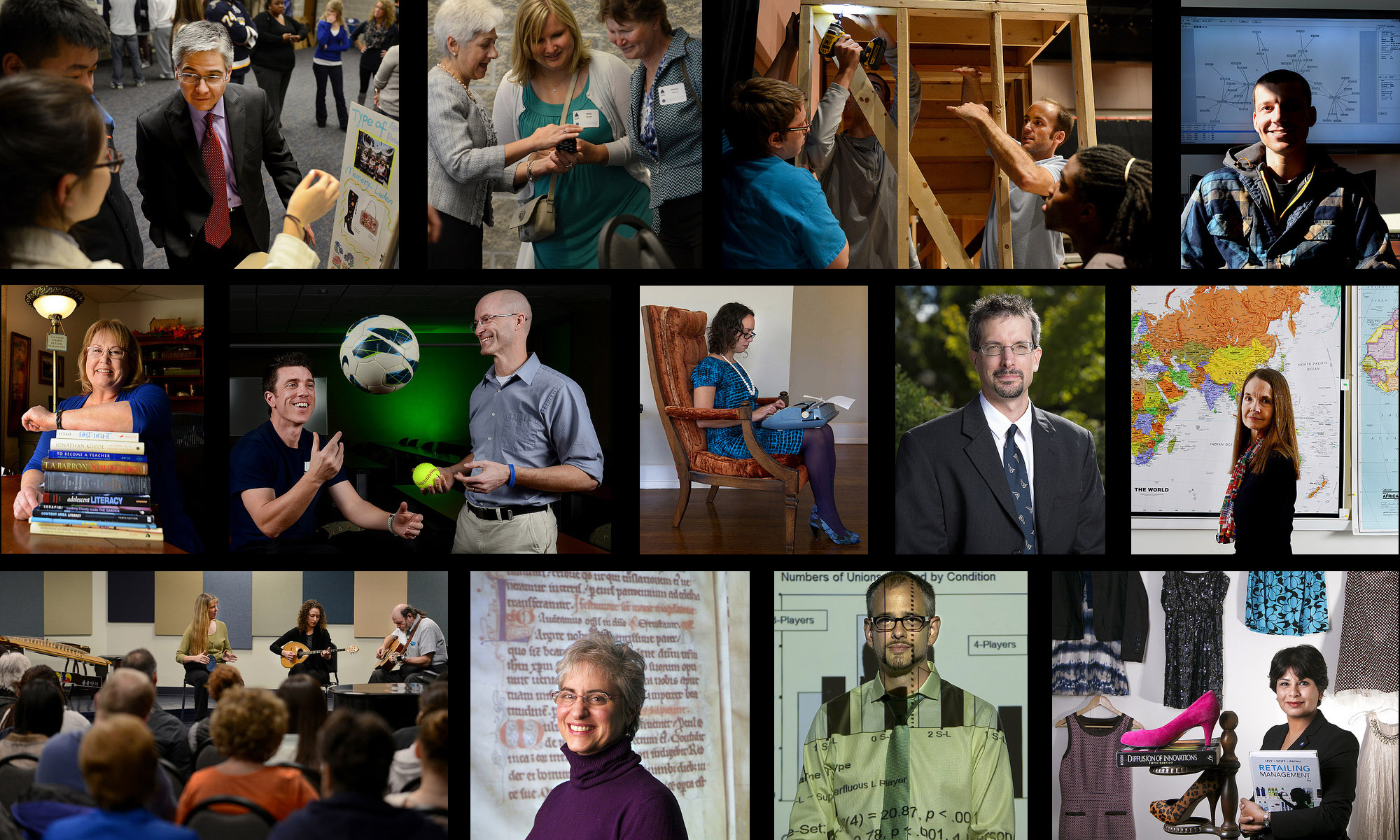Location: UIS Student Union Ballroom
9:30 Registration
10:00 Welcome
by Vickie Cook and Layne Morsch. Information about applying for Fellows programs, COLRS, OER, Excellence in Teaching & Learning
10:30-11:00 Conversations that Work Session 1
-
- The Goldilocks Syndrome – When is technology too much, too little, and just right? (A)
by Kara McElwrath & Francois Giraud-Carrier. This discussion will focus on leveraging technology to impact both student learning and teaching styles. We will address both technologies that UIS already has available as well as what technologies we need to bring to UIS.
- Novel E-collaboration Approaches to Enhance Social Presence and Effectiveness of On-Line Learning (B)
by Brian Chen & Emily Boles. The benefits of e-collaboration projects promote student learning and create an interactive online learning community. However, successful use of online e-collaborative projects requires additional teaching tactics and strategies. Participants will identify and analyze key factors in the use of e-collaboration projects in an online environment.
- Integrating the Scholarship of Teaching into Your Teaching, Research & Service (C)
COLRS Faculty Fellows & Michele Gribbins. Faculty who practice the scholarship of teaching seek to understand how students learn and how various teaching practices influence student learning in their discipline (Boyer, 1990). Join the discussion as faculty share why the scholarship of teaching is important to their growth as educators and scholars. Panelists will share how the scholarship of teaching has impacted their teaching, research, and service, and will provide suggestions on how to enhance your scholarship of teaching.
- The Goldilocks Syndrome – When is technology too much, too little, and just right? (A)
11:00 Snack Break
11:15-11:45 Conversations that Work Session 2
-
- Scholarship of Teaching and the IRB Process (A)
Keenan Dungey & Karen Swan. We are encouraged to be innovative instructors and to engage our students in the learning process. This session will discuss how you can turn such classroom interventions into a research program. But human subjects research has ethical consequences. These will be discussed, with ways to address them. - Integrating Faculty into a Residential Curriculum (B)
Daniel Schraeder & Marc Klingshirn. Residence Life intends to move towards a curricular model for the events offered to residential students in the Fall 2018. A curricular model utilizes clear learning outcomes and multiple strategies to engage learners in sequenced learning that is rooted in theory and incorporates stakeholders across campus. Provide your feedback at this session!
- Embedding Career Readiness Competencies into Program Curriculum to Bridge Skills Gap (C)
Angela Evans & Carol Jessup. Higher education professionals and faculty across the nation are increasing challenged to assess and evaluate how they prepare students for the workforce and meet real-time skill sets sought by employers. The NACE Career Readiness Competencies will be identified and best practices discussed to incorporate within applicable curriculum and activities.
- Scholarship of Teaching and the IRB Process (A)
12:00-12:45 Catered Lunch
1:00-2:00 Keynote: The Land-Grant Mission in an Online World
Introduction by Ray Schroeder
Keynote by Adam Fein, Assistant Provost for Educational Innovation, University of Illinois Urbana-Champaign
Adam is involved in shaping campus strategy and providing campus-wide support for innovations in classroom and online education. He assists academic units with the development of new types of educational programs, especially online programs, guiding campus policies around online programs, and promoting the use of data-driven research and analytics to improve student learning outcomes.
2:15-2:45 Top Strategies from Excellence in Teaching and Learning Fellows Program
-
- Tiffany Nielson
- Elizabeth Kosmetatou
- Sudeep Sharma
- Carol Jessup
- Angela Doehring
